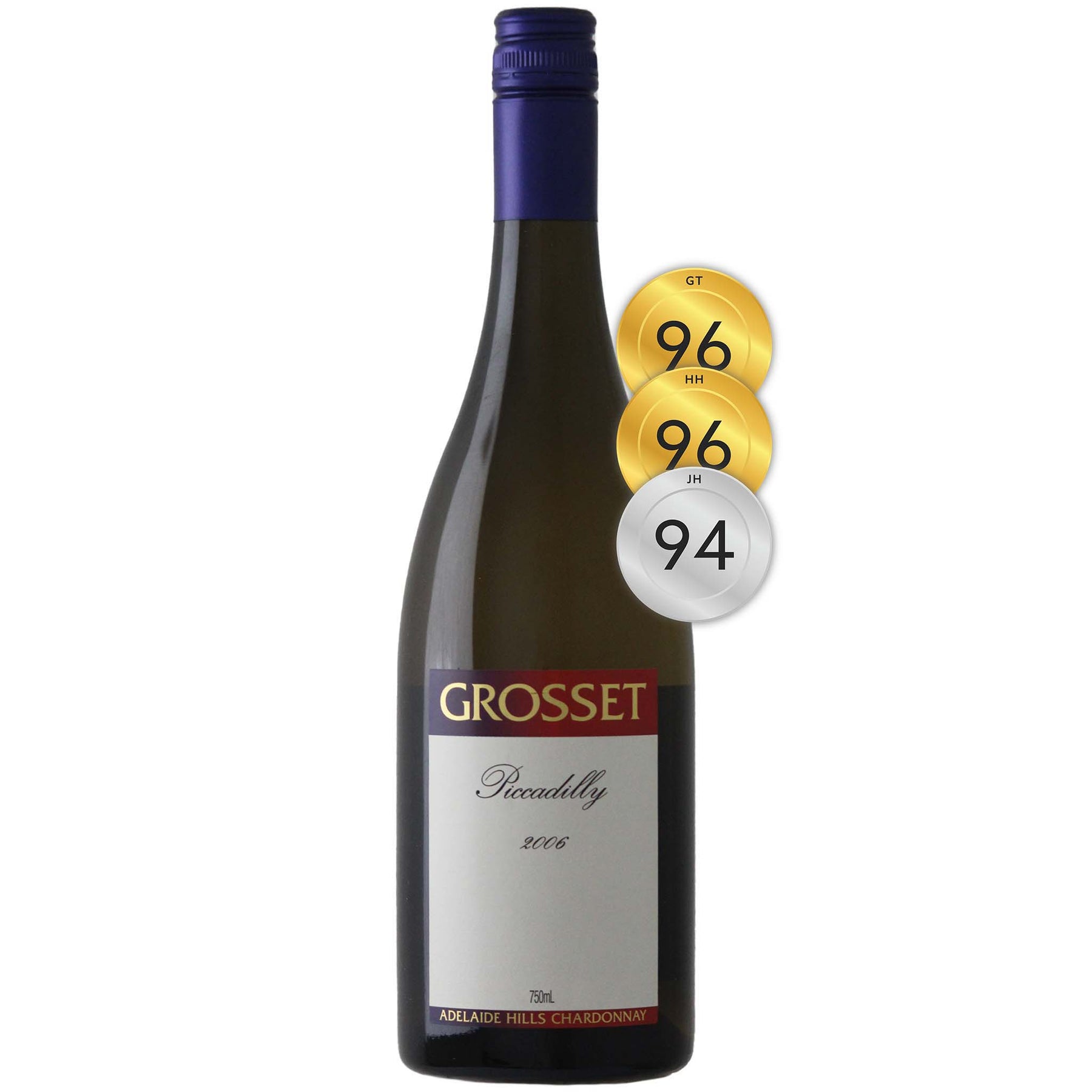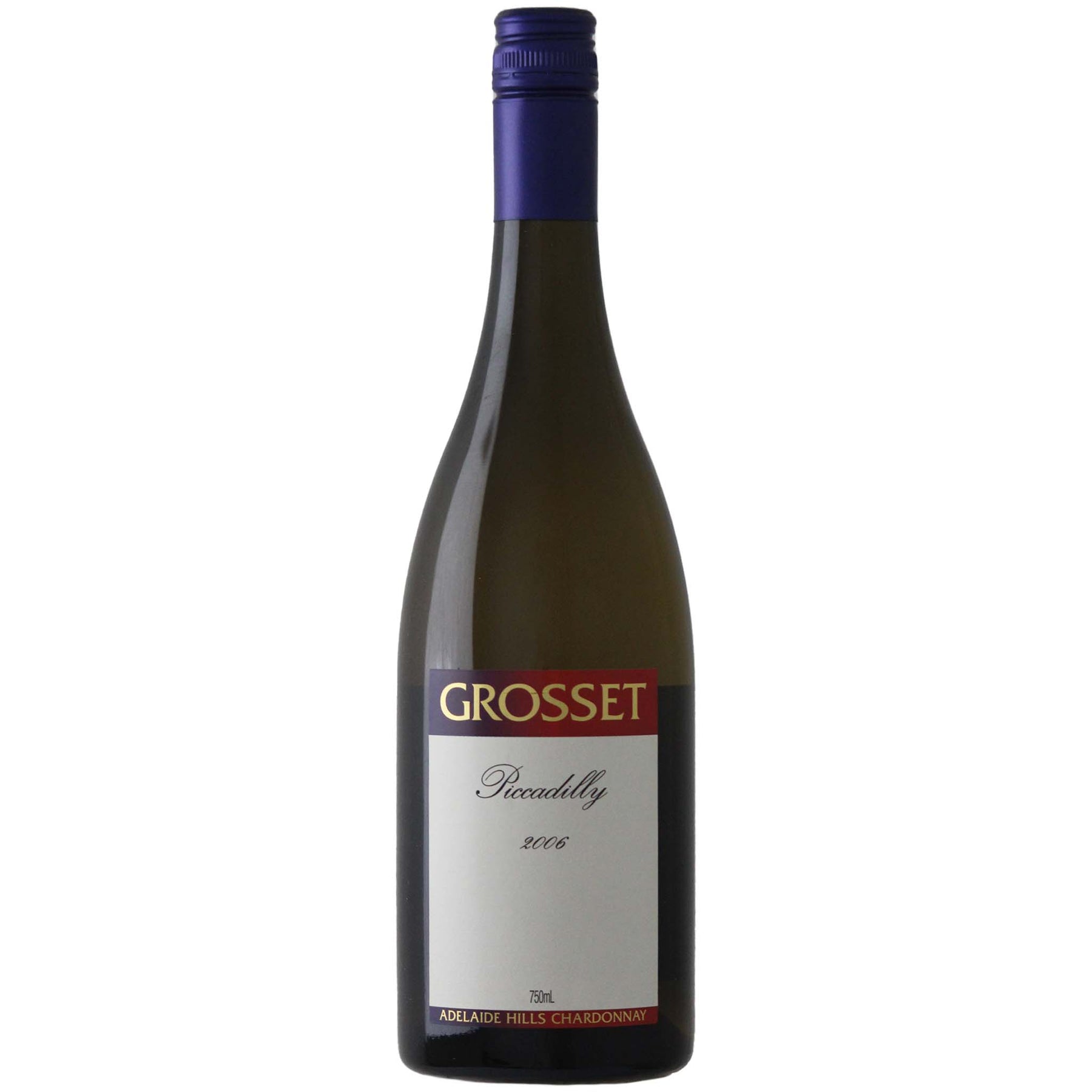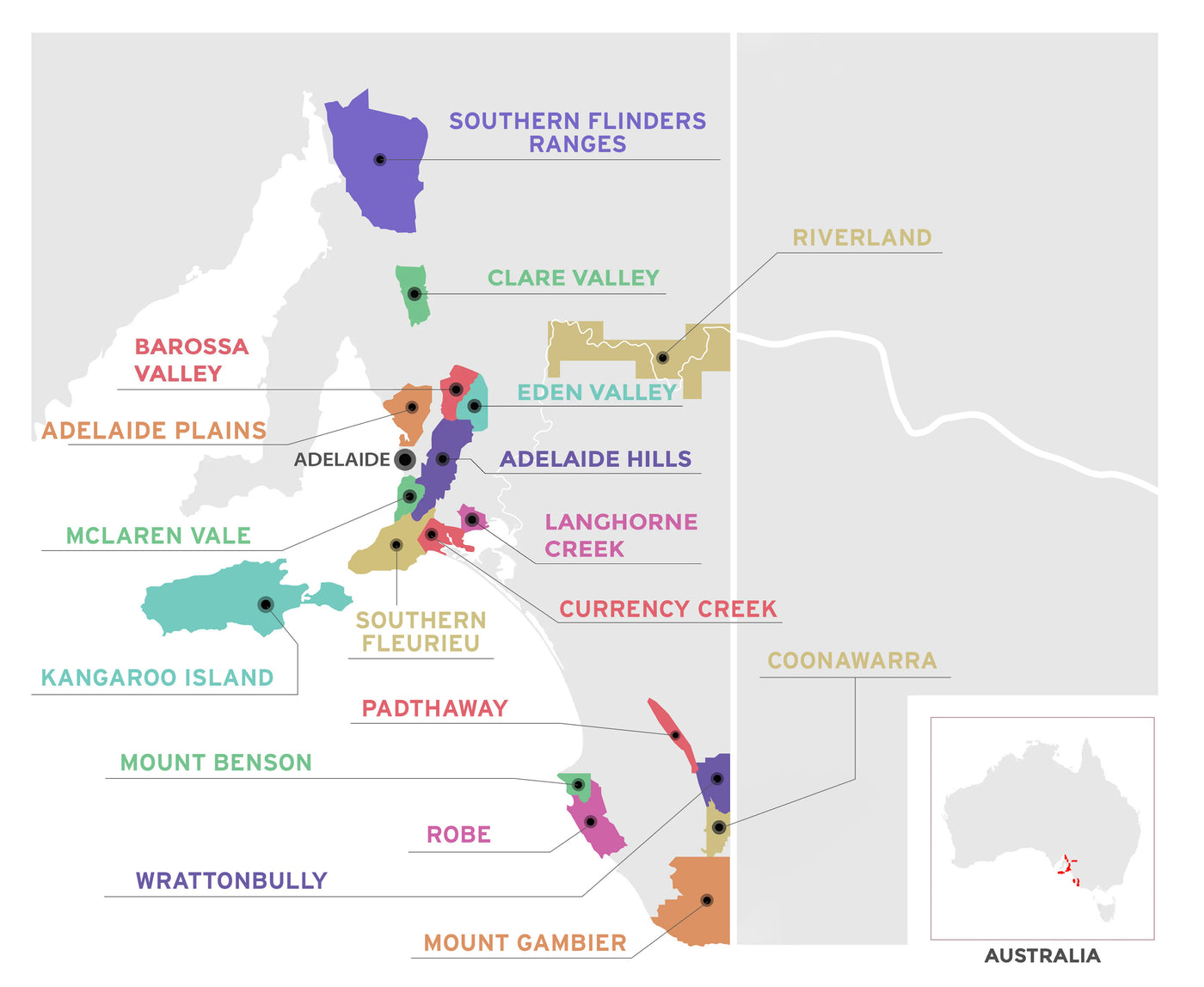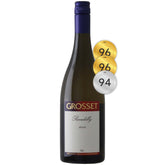

Grosset Piccadilly Chardonnay 2006
Style: White Wine
Variety: Chardonnay
Closure: Screwcap
Grosset Piccadilly Chardonnay 2006
Warehouse
34 Redland Drive
Vermont VIC 3133
Australia
Critic Score: 96
Alcohol: 14.0%
Size: 750 ml
Drink by: Now
"Although Jeffrey Grosset has been canonised by Riesling fanatics, he's not half bad at Chardonnay either. He makes a fine wine from Piccadilly (Adelaide Hills) fruit, showing grapefruit and tropical fruit aromas, a creamy palate and well-integrated new oak." Andrew Caillard MW
"Shy, delicate melon and stone-fruit aromas, subtle and understated. Palate has tangy, citrusy acidity, which carries and underlines the wine. Grapefruity, clean and fresh, soft and intense, line and length, very dry - almost salty, savoury finish and aftertaste. Great flavour, really builds along the palate, which is terrifically long. Very rewarding." Huon Hooke
"The 2006 Grosset Piccadilly Chardonnay has a characteristic tightness of structure, restraining the flavours in a tight coil that time will only slowly release. The cedary oak is subtle considering the wines youth – with a mere whisp of cedar setting off its cool tropical flavours. It has a delicate white peach, nectarine and grapefruit flavours and some slatey, minerally notes and crisp, cleansing acidity on an ultra-dry finish. There is a richness and concentration of flavour, weight and power too. The wine promises complexity once the vibrance of youth is replaced by a creamy texture and satisfying mouthfeel. As with previous Piccadilly Chardonnays, the 2006 needs a couple of years to show its best but holds that peak for some considerable time. If however, this description already appeals to you, Jeff suggests you don't wait!" Grosset
Expert reviews
"Light yellow, bright and restrained. Shy, delicate melon and stone-fruit aromas, subtle and understated. Palate has tangy, citrusy acidity, which carries and underlines the wine. Grapefruity, clean and fresh, soft and intense, line and length, very dry - almost salty, savoury finish and aftertaste. Great flavour, really builds along the palate, which is terrifically long. Very rewarding. Could age well, too." Huon Hooke, The Real Review - 96 points
"A beautifully fresh, understated, refined wine of tremendous underlying complexity. Melon and stone-fruit aromas, grapefruit in the mouth, clean and savoury at the finish. It really builds through the marvellously long palate." Gourmet Traveller Wine Jun/Jul 2008, Top New Releases – 96 points ★★★★★
"Ripe stone fruits and flashy oak aromas are evident in this complex wine; more citrus comes through on the palate, and there is great drive through to the ample, yet fine, long and minerally finish." James Halliday, Halliday Wine Companion - 94 points
"This respected label is still at the top of the tree where Australian chardonnays are concerned. It's got all the flintiness, nuts and nectarines you might expect in a $50 chardonnay as well as a succulent sourness. It goes brilliantly with fancy seafood like Tassie scallops." Greg Duncan Powell, The Sydney Morning Herald Weekend
About Jeffrey Grosset

"Jeffrey Grosset wears the unchallenged mantle of Australia's foremost riesling maker. Grosset's pre-eminence is recognised both domestically and internationally." James Halliday
Grosset was 15 when his father, an electrician, came home with a bottle of wine and shared it with the family. It was riesling and Jeffrey was gobsmacked. So began the Grosset story. The following year Jeffrey enrolled at Roseworthy Agricultural College, completing an Agriculture degree in 1973 and an Oenology degree in 1975. At the age of 21 Jeffrey started work at Seppelt Great Western, before heading to a German winery with a 1000-tonne crush as assistant winemaker, only to find the chosen French winemaker had changed his mind, leaving Grosset in charge. He subsequently returned to Australia and worked at Lindeman's Karadoc winery with its 30,000-tonne crush. But ultimately he wanted to start his own label.
In 1981 Jeffrey purchased an old milk depot in the historic township of Auburn 1981 and established Grosset Wines. He produced four wines that vintage under his own label, 800 dozen bottles in total. Now, 42 years later, Grosset is regarded as arguably the best maker of riesling in Australia and produces nine wines and 11,000 bottles per vintage.
Grosset is not shy about challenging tradition and questioning accepted practices. In the late 1980s, he was the leader of a successful movement to only allow the use of the word Riesling on Australian wines that were made specifically from the Riesling grape. Until that point, a significant number of Australian wines with Riesling on their label were made from other grape varieties.
Grosset was also the driving force behind a decision in 2000 by Clare Valley Riesling producers to switch to screwcap closures for their wines and to encourage Australian and New Zealand winemakers to do the same, and for the public, retailers and media to embrace the change. He continues to privately fund research into the subject.
Next, he established the Grosset Gaia Fund, donating to charities supporting youth, the arts and the environment. Recently he has led the way for Australian winemakers to use blockchain technology for verification of product provenance, authenticity and seal integrity.
Jeffrey Grosset has received a great deal of local and international recognition for his winemaking. In 1998, he was the first recipient of "Australian Winemaker of the Year" from Gourmet Traveller Wine magazine and was named the "International Riesling Winemaker of the Year" at the Riesling Summit in Hamburg, Germany. He was nominated in 2005 as one of the world's "50 Most Influential Winemakers" by Wine & Spirits and in 2006, named as one of the "Top 10 White Winemakers" in the world by Decanter magazine.
Grosset's philosophy has remained steadfast over the years, the emphasis is on purity of fruit. The estate vineyards, which are ACO certified organic, are hand-tended and each bunch of grapes is harvested at optimum ripeness. The winemaking process is gentle and uncomplicated. With dedication, discipline and the application of knowledge garnered through decades of experience, the result is the finest expression of variety and place.

South Australia
South Australian is responsible for more than half the production of all Australian wine. It is home to more than 900 wineries across 18 wine regions. The regions are Adelaide Hills, Adelaide Plains, Barossa Valley, Clare Valley, Coonawarra, Currency Creek, Eden Valley, Kangaroo Island, Langhorne Creek, McLaren Vale, Mount Benson, Mount Gambier, Padthaway, Riverland, Robe, Southern Fleurieu, Southern Flinders Ranges and Wrattonbully.
Many of the well-known names in the South Australian wine industry established their first vineyards in the late 1830s and early 1840s. The first vines in McLaren Vale were planted at Reynella in 1839 and Penfold's established Magill Estate on the outskirts of Adelaide in 1844.
South Australia has a vast diversity in geography and climate which allows the State to be able to produce a range of grape varieties - from cool climate Riesling in the Clare and Eden Vallies to the big, full bodied Shiraz wines of the Barossa Valley and McLaren Vale. Two of Australia's best-known wines, Penfolds Grange and Henschke Hill of Grace, are produced here. There is much to discover in South Australia for the wine lover.

